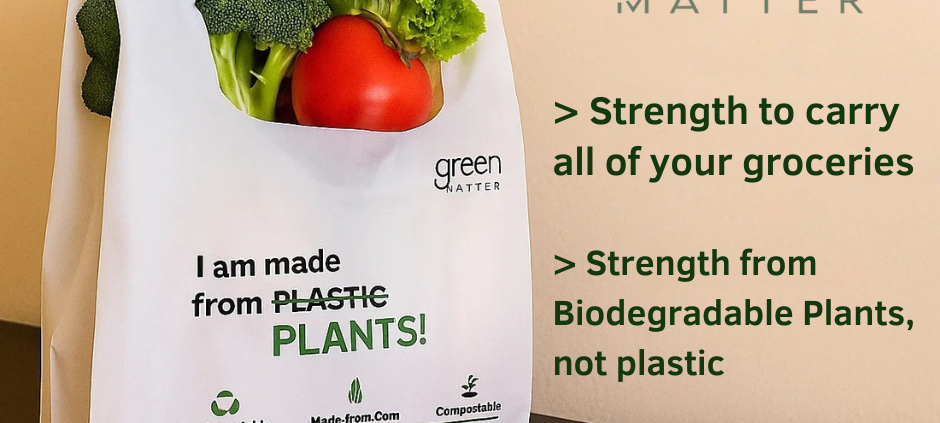Are Compostable Grocery Bags Safe for Food Storage and Everyday Use?
With the global shift toward sustainable living, compostable grocery bags are gaining popularity as a greener alternative to plastic. But as consumers grow more environmentally conscious, a crucial question often arises — are compostable grocery bags truly safe for food storage and everyday use? In this blog, we’ll explore how compostable bags work, their safety, and how they compare to eco biodegradable bags and biodegradable grocery bags.
What Are Compostable Grocery Bags Made Of?
Compostable grocery bags are typically made from natural materials like cornstarch, cassava, PLA (polylactic acid), and other plant-based polymers. These materials are designed to break down into non-toxic elements under composting conditions — meaning they return to the earth safely without leaving microplastics behind.
Are They Safe for Food Storage?
Yes — most certified compostable grocery bags are safe for storing fruits, vegetables, dry groceries, and even refrigerated food items. Look for bags that are certified as compostable under standards like ASTM D6400 or EN 13432. These certifications ensure that the materials are non-toxic and meet strict safety guidelines for food contact.
However, it’s important to note that compostable bags are generally not intended for long-term storage of wet or greasy food, as they can start breaking down with moisture over time.
Compostable vs Biodegradable vs Eco Biodegradable Bags
Many people confuse the terms compostable, biodegradable, and eco biodegradable bags. Here’s a simple breakdown:
- Compostable Grocery Bags: Break down completely into nutrient-rich compost under specific composting conditions, leaving no toxic residue.
- Biodegradable Grocery Bags: Break down naturally over time but may leave microplastics if not properly processed.
- Eco Biodegradable Bags: A marketing term often used for biodegradable bags made with some natural content — but not always fully compostable.
Always read the packaging and certification to know exactly what you’re buying.
Benefits of Using Compostable Grocery Bags
Here are some of the key benefits that make compostable grocery bags a smart, everyday choice:
- Environmentally Safe – Break down without harming soil or water bodies.
- Reduces Plastic Waste – Keeps single-use plastic out of landfills and oceans.
- Food-Safe Alternatives – Made with natural materials that don’t leach toxins into your food.
- Odor-Free and Breathable – Ideal for storing fresh produce, as they reduce moisture build-up.
- Supports Home Composting – Many bags are suitable for home compost bins when disposed of properly.
Limitations and Things to Consider
While compostable grocery bags offer many benefits, here are a few practical considerations:
- Shorter Shelf Life – Exposure to air and humidity can weaken the material over time.
- Not Suitable for All Waste – Avoid using them for oily, hot, or chemical-laden items.
- Need Proper Disposal – They require composting conditions to break down properly. Throwing them in regular trash defeats the purpose.
Tips for Everyday Use
If you’re planning to make compostable bags a part of your everyday lifestyle, here are a few simple tips:
- Store them in a cool, dry place away from sunlight.
- Use them for fresh produce, dry goods, or light groceries.
- Do not reuse for wet waste unless specified as safe.
- Compost them in home or industrial composting systems whenever possible.
Where to Buy Safe, Certified Compostable Grocery Bags
Always opt for reputable brands that clearly label their bags as certified compostable. Many online and local eco-friendly stores now offer compostable and eco biodegradable bags in various sizes. Look for terms like “100% compostable”, “food safe”, or certifications like BPI, OK Compost, or ISO 17088.
Conclusion
Compostable grocery bags are not only an eco-friendly alternative but also a safe and practical solution for daily shopping and food storage — as long as you use them correctly. Whether you’re replacing plastic with biodegradable grocery bags or choosing eco biodegradable bags, always check for certifications to ensure safety and sustainability.
Switching to compostable bags may seem like a small change, but it contributes to a larger impact on reducing plastic waste and prese




Leave a Reply
Want to join the discussion?Feel free to contribute!